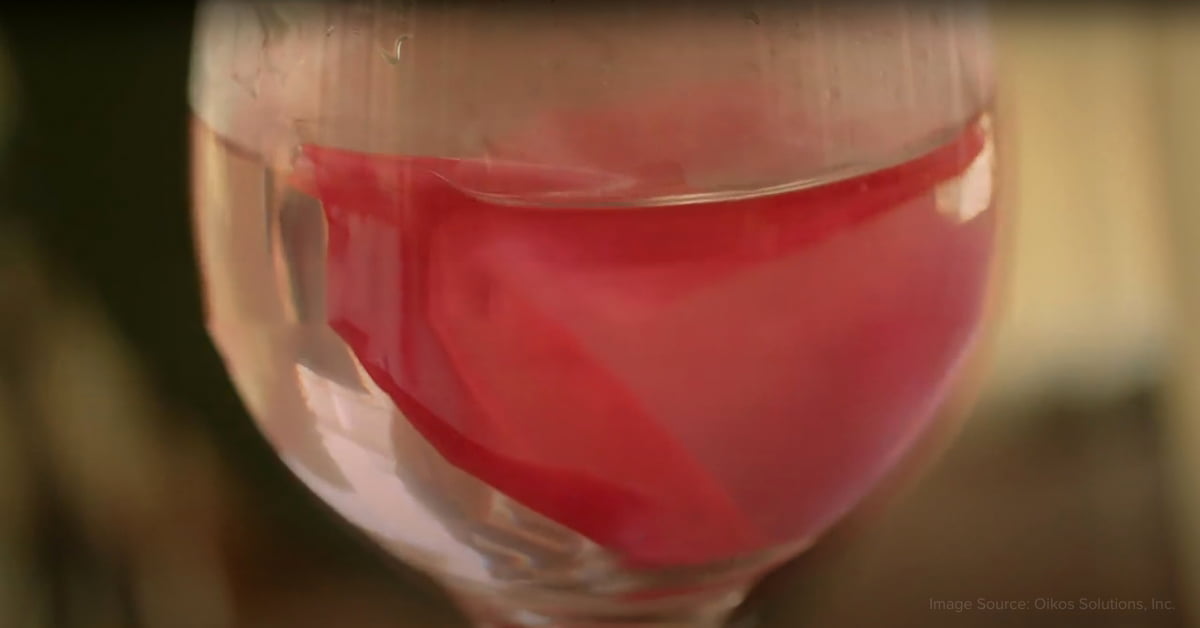
Published
April 26, 2023
Tags:
Due to its renewable and fully-compostable materials, disposing corn starch bags also remain eco-friendly, and is quite easy to do as well.
The world is better off with less plastic, and there are many ways you can help as an eco-friendly business. Since then, companies have introduced plenty of sustainable packaging solutions to promote sustainability, and one of these is corn starch bags.
The manufacturers make cornstarch bags by fermenting starch to produce polylactic acid, which is a biodegradable material. Due to its renewable and fully-compostable materials, these might just be your answer to foregoing plastic packaging for good. Disposing corn starch bags also remain eco-friendly, and are quite easy to do as well.
Read this article to learn about how plastics are harmful, and how you can maximize corn starch bags’ sustainability through proper disposal.
How non-eco-friendly packaging is harming the environment

The excessive use of plastics and non-eco-friendly packaging is a major concern for the environment in recent times. Due to their convenience and affordability, many consider these products a staple in everyday life.
From single-use shopping bags to water bottles and food packaging, consumer culture has become synonymous with plastic use. However, the negative impacts of plastic dependency are too serious for us to ignore.
Plastic production alone contributes to environmental degradation via the release of greenhouse gas emissions and extraction of fossil fuels. The damage is worse whenever you dispose of plastics. Their non-biodegradable nature leads to waste accumulation in oceans and landfills, threatening ecosystems, wildlife, and human health at large.
Reducing our dependence on plastic is crucial in mitigating its negative effects on the environment. Advocates encourage consumers and businesses to switch to sustainable options such as food containers and alternative packaging, including corn starch bags, for this reason.
What are corn starch bags and how are they different?

Manufacturers advertise cornstarch bags as a sustainable packaging option to replace plastic. They use corn, a renewable crop that grows throughout the year, to produce bioplastics that can be extracted for various purposes, such as disposable cutlery, soft or hard plastic goods, and product packaging. The resulting material is always carbon neutral and biodegradable, hence its numerous eco-friendly approvals.
Petroleum-based plastics contain no corn starch, whereas corn starch bags are fully compostable and do not contain any plastic, making them a more environmentally friendly option. Since corn production occurs all year round, you won’t have to worry about being short of materials, too.
The process of extracting cornstarch for bioplastics starts when you soak the kernels in sulfur dioxide and hot water. Corn starch bags break down into starch, fiber, and protein. Manufacturers then grind the kernels and extract starch from the corn oil. This leads to the creation of a bioplastic known as Polylactic acid (PLA), which is among the two major bioplastics in the field.
PLA proves to be as versatile as petroleum-based plastic. You can also use this to make cornstarch sustainable products that can rival traditional plastic materials like polystyrene which are harmful to the environment.
How to properly dispose of cornstarch bags

Although corn starch bags make a great packaging alternative for businesses, it is necessary to dispose of them correctly to maximize sustainability. There are several biodiversity concerns surrounding corn crops, especially regarding pesticides and fertilizers used to raise corn.
If this was the case, the chemicals used in converting cornstarch to PLA would mean that the production process makes greater amounts of pollutants than regular plastics. This essentially means that while PLA is compostable, the conditions by which they were grown are equally important to consider.
Composting is the proper, most immediate way of disposing of corn starch bags. However, you’ll need to have a “controlled composting environment”.
This controlled compost doesn’t necessarily refer to a backyard bin or pit. Rather, it’s a large facility where compost reaches 140 degrees for at least ten consecutive days. This makes it so that the plant scraps are effectively digested by microbes into fertilizer for the earth.
Be better with Oikos

Instead of regular plastic, eco-friendly packaging solutions like corn starch bags are viable alternatives. They can be used in your business for the long haul. Corn starch bags are not only entirely plant-based, but also decompose naturally within three to six months.
Oikos Sustainable Solutions is an eco-friendly business that offers corn starch bags as viable alternatives. These are made from renewable materials that naturally decompose. It’s also the first and only brand in the Philippines to merit an Environmental Technology Verification from DOST for its cassava and corn bags. Oikos’ products can be customizable based on specific needs. They can be used as buy bags, trash bags, mailer bags, and more.
Be part of the mission of making Earth a greener place to live in. Get your corn starch bags with Oikos now.
Facebook
Linkedin
Twitter
Pinterest
